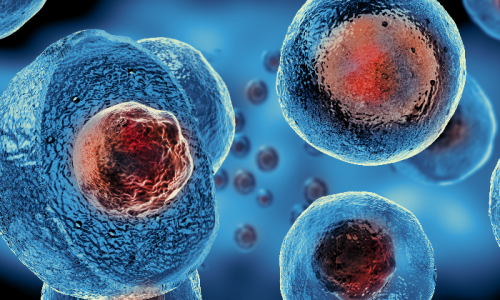- AHSCT is one of the most highly anticipated treatments for MS.
- Italian researchers follow 210 people who had AHSCT for MS up to ten years after their treatment and the results of the study show long lasting effects for some people.
- Overall, at five years 79.5% of people in the study did not have worsening disability, at ten years this fell to 65.5%.
AHSCT (autologous haemopoietic stem cell therapy) is one of the most highly anticipated MS treatments. AHSCT aims to reboot the immune system with the hope that the “new” immune system does not develop MS. People with all types and stages of MS wonder if AHSCT could be a treatment option for them in place of more conventional, more targeted medications. The absence of clinical trial data comparing AHSCT to other MS medications makes it hard to know the effectiveness of this treatment option. This new Italian study begins to address this gap in knowledge.
A new long-term study into AHSCT for MS
Italian researchers have now published data after following 210 people from 20 different Italian treatment centres for an average of 6.2 years, to try and understand the long-term effectiveness of AHSCT for MS. This is one of the longest ever follow-up studies of people who have undergone AHSCT for MS.
The study included people who had undergone AHSCT between 1997 and 2019. Of the 210 people followed, 122 had relapsing-remitting MS, 86 had secondary progressive MS, and two had primary progressive MS. Unfortunately, three people died within 100 days of their treatment and this was considered to be related to the AHSCT. However, these deaths were in the earlier years of this study, and as treatment procedures and research of AHSCT in MS has developed, this risk might have reduced.
Disability Worsening
Overall, at the five-year point after receiving AHSCT, 79.5% of people had not had any disability worsening due to their MS, at ten years this fell to 65.5%. When the participants were separated into groups based on their type of MS, those with relapsing-remitting MS showed a greater response to AHSCT. Figures showed that those with relapsing-remitting MS and no disability worsening was 85.5% of the group at five years and 71.3% at ten years. However, for people with progressive MS, these numbers were lower at 71.0% after five years and 57.2% after ten years.
Relapses and Disease Activity
The researchers also looked at the relapse rate and showed that 78.1% of people with relapsing-remitting MS remained relapse-free five years following AHSCT. After ten years, this dropped to 63.5%. Besides relapses, another measure of the effectiveness of a treatment is NEDA. NEDA stands for “no evidence of disease activity” and is essentially a measure that combines any relapses, any signs of disease activity by MRI, and any signs of disability worsening.
When the researchers used NEDA to measure how effective AHSCT was in people with relapsing-remitting MS, the likelihood of being NEDA at five years was 62.2%, and 40.5% at ten years. In the group with progressive MS, NEDA status estimates were lower, at 50.8% and 37.3% at five and ten years, respectively. These are promising numbers but highlight the fact that AHSCT is not a magic bullet and does not work for everyone with MS. Exploring why these differences occur and which type of patient will respond best to AHSCT is critical to understanding where AHSCT will fit into the world of MS treatments in the future.
Different AHSCT Protocols
The study also compared slight variations in the AHSCT protocols, which involve giving a form of chemotherapy (known as non-myeloablative and myeloablative, the latter considered to be more intense chemotherapy). People with relapsing-remitting MS did appear to have slightly better outcomes if they had more intense chemotherapy, but this chemotherapy protocol was also associated with the deaths in this study. No difference in treatment outcomes was detected in the people with progressive MS.
Treatment of MS following AHSCT
Thirty-two participants started a new medication for their MS after undergoing AHSCT, on average they started a new treatment 3.7 years following transplant. Collecting data on people who have additional therapies after AHSCT is very important because currently, it is hard for clinicians to know the best treatment for the future once someone has undergone AHSCT and had their immune system depleted.
What does this mean for people with MS?
MS typically takes years to develop. AHSCT aims to reset the immune system, but what that means and the possibility of MS re-developing following this reset is unknown. That is why studies like this are so critical. The researchers also show that the effects of AHSCT can last over ten years. However, any comparison or recommendations between current MS medications and AHSCT cannot be drawn from this study.
We look forward to seeing future clinical trials results looking at comparisons between the newer generation highly effective medications and AHSCT.
The data presented here also shows some effects for some people with active progressive MS (i.e. those people that experience new MRI activity or relapses). The researchers concluded that AHSCT should be considered a treatment strategy for people with active MS not responding to conventional therapy.
For more information on AHSCT, click here, and for more details of MS Research Australia’s research in ASHCT click here. For people living with MS, it is essential when considering any treatment option to always discuss this with your neurologist prior to making any changes to your treatment plan.







